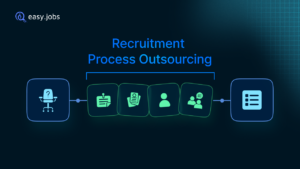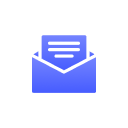The evolution of AI in hiring started not with robots, but with recruiters overwhelmed by resumes and hiring managers relying on instinct. Software emerged to quickly analyze resumes and predict candidate fit, transforming recruitment into a data-driven science, quietly addressing frustrations and significantly impacting HR practices.
The impact of AI on hiring decisions is not just about automation. It is about confidence. A decision that is not just fast, it is fair. If the people you shortlist have more than a keyword match, they have real potential. That is the real revolution happening behind the dashboards of modern recruitment teams.

Understand the Impact of AI on Hiring Decisions
To understand this shift, it helps to go back a few years. Traditional recruitment relied on human judgment, gut feeling and the occasional Excel tracker. While experience still matters, human limitations are undeniable. Cognitive bias, fatigue and limited data visibility all affect how we judge candidates.
AI changed that rhythm. Instead of a recruiter manually scanning 300 resumes, an AI-powered system can filter them in minutes, flagging high-potential candidates and highlighting anomalies. But this is not about replacing judgment. It is about amplifying it.
Modern hiring decisions now lean on machine learning models that analyze patterns:
- Who succeeded in similar roles before
- Which candidates’ resumes show transferable skills
- How well someone aligns with job descriptions beyond titles
The insight layer these models create allows recruiters to move from “Who looks good on paper?” to “Who will actually thrive here?”
And this, right here, is where the impact of AI on hiring decisions becomes visible. It is not about speed alone. It is about depth, fairness and predictive clarity.
How AI Is Reshaping Hiring Across the Recruitment Lifecycle

We often speak of AI as if it is one tool, but it is not. It is a network of technologies reshaping hiring in every phase, from sourcing to onboarding. Let us walk through what that looks like in reality.
From Job Post to Candidate Sourcing
AI starts before a single resume arrives. Machine learning helps optimize job descriptions to remove gender-coded language or bias. Platforms like easy.jobs or even ATS-integrated tools can forecast which phrases attract better applicants or deter top talent.
This is not just semantics; it is strategy. If you have ever wondered why one job post attracts senior talent while another drowns in irrelevant applications, AI often holds the answer. It fine-tunes visibility, audience targeting and posting time. That is the first quiet win: better sourcing through smarter data.
AI-Powered Resume Screening And Candidate Shortlisting
This is the arena where AI’s reputation really shines. The AI-powered resume is not just scanned for keywords anymore. Systems now understand context.
For example, when a candidate lists “data visualization” without mentioning “Power BI,” the AI knows the correlation and would not penalize them. It can even extract performance indicators, project impact and quantified results that might have been lost in manual review.
Recruiters do not need to guess who to call first anymore. The system prioritizes candidates based on multidimensional fit: skills, experience, past success predictors and culture alignment.
But here is the subtle transformation. It does not just filter people out. It reveals hidden talent. Candidates with unconventional paths suddenly surface because the AI can read between the lines. This stage proves that automation does not depersonalize recruitment. It democratizes it.
Overcome Recruitment Bottlenecks Through Automation
Every recruiter knows this bottleneck: too many applicants, not enough hours. Or, the reverse, not enough applicants and too many manual steps to reach out.
AI turns those recruitment bottlenecks into optimization points. Automated scheduling tools, chatbots that handle FAQs and workflow-triggered communications reduce the dead time between steps.
Imagine this: a recruiter shortlists ten people in the morning and by afternoon, five of them have automatically scheduled interviews without a single email exchange. That is the kind of operational velocity AI brings.
But what is often overlooked is how automation improves candidate perception. A faster, more organized process translates to a more respectful experience and in recruitment, perception is brand.
Empowers Decision-Makers: AI for Hiring Managers

While recruiters see AI as a time-saver, AI for hiring managers is an entirely different proposition: it is a decision amplifier. Hiring managers are no longer limited to resume stacks or feedback notes.
They now receive real-time analytics, predictions on a candidate’s likely tenure, performance fit and even adaptability to company culture. Instead of relying on “this person feels right,” managers can now look at dashboards that show why that feeling might be accurate or misleading.
Data-Driven Hiring Decisions
Data has finally entered the conversation room. Predictive analytics gives hiring managers something more valuable than a shortlist: context. AI combines historical data (who was successful before) with behavioral markers (how someone communicates, their problem-solving approach) to score candidates beyond surface-level criteria.
This means decisions are less about opinions and more about evidence. And that is how trust in the process builds not just among recruiters but among the entire leadership team.
Augment Human Judgment, Not Replace It
Let us pause on something essential: AI is not here to replace intuition. It is here to validate it. Humans are intuitive. Machines are consistent. Together, they balance each other out. AI can surface a candidate your hiring manager might overlook, but it is still the human who understands nuance, chemistry in an interview, resilience under pressure and cultural resonance.
This human-AI synergy is not about letting technology take the wheel. It is about giving decision-makers a dashboard instead of a blindfold.
The Business Impact: Faster, Fairer & Smarter Recruitment
When AI entered recruitment, many thought of it as a cost-saving measure. What is actually unfolding is a performance revolution. Organizations using AI in hiring report measurable improvements in every operational metric, time-to-hire, cost per hire and quality of hire. But beyond numbers, the psychological shift inside teams is fascinating.
Recruiters start spending time where it matters, candidate engagement, storytelling and human connection, instead of sifting through noise. Hiring managers gain visibility into why specific candidates succeed or churn.
And leadership teams? They finally get clarity, the kind of clarity that builds consistency across hiring cycles. That is the real impact of AI on hiring decisions: not just better data, but a better decision culture.
The ROI of AI: Measure What Really Matters

Adoption stories often start with curiosity, but long-term success always comes down to proof. AI in recruitment has moved beyond the experimental phase. Its outcomes are now measurable, consistent and scalable.
Organizations that integrate AI into their hiring process typically report:
- Reduced time-to-hire by up to 65%, as repetitive manual steps vanish according to a journal on AI-driven recruitment.
- Improved quality of hire, because the shortlist starts with evidence, not intuition.
- Lower turnover rates, as predictive matching connects the right talent to the right culture.
- Stronger candidate experience, since communication delays, once a silent brand killer, are replaced by timely, AI-managed engagement.
But the real ROI is not just in metrics. It is in decision maturity. Recruitment teams are learning to trust structured data the way marketers trust analytics dashboards. The once vague “gut feeling” is now reinforced by data signals. The conversation in boardrooms is no longer “Did we make a good hire?” but “What did our model learn from this hire?”
And this shift from reactive to learning-based recruitment is what separates future-ready HR teams from those still hiring by instinct.
Ethical And Practical Challenges in AI-Driven Recruitment

AI is powerful, but it is also imperfect. Because it learns from human data and humans are far from unbiased. The same datasets that teach machines to recognize top performers can also teach them to replicate old hiring patterns.
Address Algorithmic Bias And Fairness
The good news is that awareness has matured. Early adopters of AI often discovered that unchecked algorithms could favor candidates from specific backgrounds or universities simply because past hires looked the same. That is no longer acceptable and technology itself is evolving to counteract it.
Modern recruitment platforms now build in bias detection models that alert teams when their selection data skews too heavily toward one demographic. Some even provide “fairness dashboards,” allowing HR leaders to visualize decision balance in real time.
But bias correction is not purely technical; it is cultural. The most responsible organizations use AI as a mirror, not a mask. They review not just what the AI recommends, but why it does so. They know that accountability does not disappear when algorithms arrive. It becomes even more necessary.
Ensuring Transparency And Human Oversight
Transparency is the new trust currency in AI recruiting. Candidates are increasingly aware when AI is used in screening or assessment, and they expect fairness or at least clarity.
Progressive companies are adopting Explainable AI (XAI) models, systems that can justify each recommendation in plain language. Instead of a mysterious “candidate score,” hiring managers can see exactly which experiences, skills and performance indicators led to that rating.
This builds internal confidence and external credibility. When candidates understand that data, not discrimination, backs an AI-powered decision, the employer brand strengthens and in talent markets, trust is everything.
Prepare for the Future: What Comes Next in AI Recruitment

AI’s current role is significant, but it is only the beginning of what is possible. The next chapter of recruitment technology will blend intelligence with empathy. A dual capability that will separate good hiring tools from transformative ones.
Predictive And Conversational AI
Recruitment is already moving beyond dashboards into dialogue. Chatbots powered by advanced language models are no longer limited to basic FAQs. They can conduct preliminary interviews, analyze tone and engagement and assess communication clarity.
For candidates, this means faster feedback. For recruiters, it means deeper insight before a human interview even begins.
Meanwhile, predictive AI is helping HR leaders anticipate workforce trends. Which departments might need new hires soon, where burnout risks are rising and how internal mobility can fill future gaps. Recruitment is no longer about reaction. It is about readiness.
From Automation to Intelligence
A key misconception about AI in HR is that automation is the end goal and it is not. Automation saves time because intelligence creates strategy.
The coming wave of HR tech will not only execute tasks but interpret outcomes, spotting patterns in hiring success, connecting skill gaps to learning programs and even forecasting leadership potential based on communication patterns and project history.
Hiring managers will evolve from evaluators to strategic talent architects. Their role would not be to “approve” candidates but to design data-informed pipelines that continuously align with business goals.
Revisit the Human Element
Amid all the dashboards, data and deep learning. It is easy to forget one truth: every line of code in AI recruitment still serves one purpose, which is to connect people.
Technology can optimize for performance, but only humans can interpret purpose. The recruiter’s empathy, the hiring manager’s vision, the organization’s culture. These are the variables AI cannot fully quantify, yet they define the ultimate success of every hire.
That is why the most successful AI-driven recruitment systems do not try to replace human intuition; they try to earn their trust. They give recruiters clarity, not commands. They enhance fairness without eliminating personality. They make hiring decisions feel less like guesses and more like informed judgments. That balance between data and discernment is what modern recruitment is truly redefining.
The Future of Confidence in Hiring
If you strip away the tech jargon and predictive models, the story of AI in recruitment is actually simple: It is about giving decision-makers clarity in complexity.
A recruiter once overwhelmed by a thousand resumes now has a focused shortlist. A hiring manager once uncertain about a candidate’s potential now sees data-backed predictions. A leadership team once skeptical about hiring ROI now measures it with precision.
That is not just efficiency, it is empowerment. The impact of AI on hiring decisions goes far beyond productivity metrics. It has changed how organizations perceive talent from something to be filtered to something to be understood.
AI has turned recruitment into a continuous feedback loop: every hire refines the next, every decision teaches the system and every dataset makes future decisions sharper, fairer and faster.
Redefine the Future of Recruitment
Recruitment has always been about choices. Who we bring in, who we trust, who we bet our culture on. AI does not remove that responsibility; it sharpens it.
The next generation of recruiters and hiring managers would not just be tech users. They will be interpreters of intelligence. They will know when to rely on data, when to challenge it and how to merge insights with instincts.
That is what redefining the future of recruitment really means: confidence built on clarity. Not blind trust in algorithms, but informed trust in ourselves, aided by the most innovative tools we have ever had.
Subscribe to our blog for practical, data-backed insights that help you elevate your hiring strategy from streamlining candidate evaluations with AI to building a stronger, more authentic employer brand. And if you would like to be part of a growing network of forward-thinking recruiters and HR innovators, join our Facebook community. Where conversations go beyond trends to real-world experiments, lessons, and strategies shaping the future of work.






